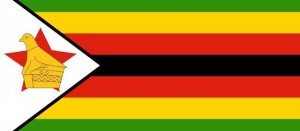- WICKNELL CHIVAYO left school at 15
- DISGRUNTLED Zimbabwe police stage uniform protest.
- MNANGAGWA wife Auxillia drops charges against nine women who boed her in Manicaland
- O.J. Simpson dies of cancer , aged 76.
- South Africa ANC is the cause of ZIMBABWE troubles claims Zimbabwe opposition politician Job Sikhala
Zimbabwe and other African countries should ban the second hand vehicle imports and create their own indigenous vehicles’-NISSAN

Zimbabwe and other African countries should ban the importation of second hand vehicles and create their own indigenous automotive sectors that produce vehicles that are fit for their environment to accelerate industrialisation on the continent, an official has said.
Nissan Group director of sales and operations for Africa, Jim Dando said currently there were about 45 million vehicles in Africa and most of these vehicles were never intended for African “road conditions or our fuel quality”.
“We end up with ostensible mobility solutions that in reality are bad for the health of our people, both in terms of the damage they do to the environment and the risk they pose for both passengers and drivers,” Dando said in a statement.
“The only sustainable solution for Africa is to clean up the fuel quality, ban the importation of second hand vehicles and create Africa’s own indigenous automotive sector, producing harmonised vehicles that are fit for Africa. This will create jobs directly, fast track the industrialisation of the continent and change the many economies that are still largely resource based.”
Where possible, Dando said certain countries, especially Africa’s island states should seriously consider electric cars given the closed transport eco-system that already exists.
Zimbabwe spends an average of US$500 million annually on second-hand vehicle imports.
Of the over 1,4 million vehicle population, second-hand vehicles constitute between 35% and 50% in Zimbabwe.
Of the 54 countries that make up Africa, Dando said only five countries have an outright ban on the importation of second hand vehicles.
“None of this is possible without the political will to change and the policies to underpin them,” Dando said.
“No manufacturer will want to invest in creating an automotive assembly plant in a country without this kind of protection and guarantee, but where there are these kind of policies in place, we can start building affordable cars locally, creating jobs and helping industrialise Africa to meet its full potential …,” he added.
“… when we do that, we can start to see the same trajectory that the automotive industry has seen in places like Thailand, which now has the 12th largest automotive industry in the world, or China.”
In Africa Nissan has three manufacturing hubs in South Africa, Egypt and Nigeria.
Shipping vehicles from UK to Zimbabwe for lessSource – newsday
INFORMATION IS POWER!-Thank you for the support. Please email all your articles, photos and breaking news, to newzimbabwe.vision@yahoo.com ,linkedin.com/in/sibusiso-ngwenya-563a572b or whatsapp to Mr Sibusiso Ngwenya 0044 79 3 9100534 for publication on the constantly growing online groups, currently standing as follows
1) Global News 4us all 208,814 members
2) Democratic Prosperous Future 32,309 Members
3) Climate, Green Energy, Pollution 18,685 members
4) Newzimbabwevision.com website 22,913 likes
22,909 followers.
Manages Newzimbabwevision
Followed by 12,397 people